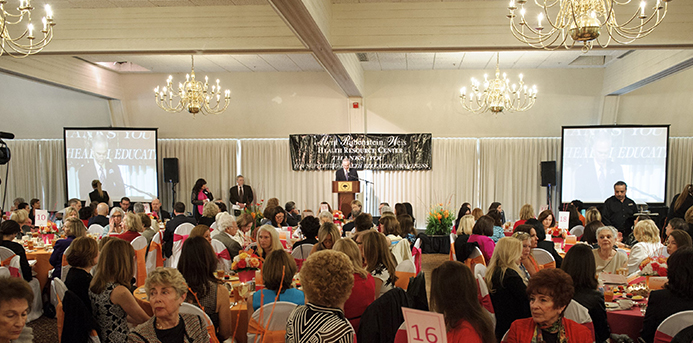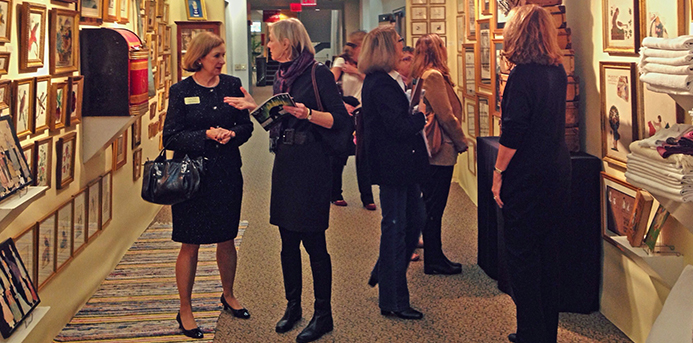Growing up in Hinsdale, Kristin Shea made annual visits to Winnetka for the Antiques show at Winnetka Community House. Now she’s one of the women who make that show happen.
Last year, Shea, 36, joined the Winnetka Community House women’s board, a group of 56 women that handles the organization’s three major annual fundraisers and, all told, raises about $125,000 a year for Winnetka Community House. The board is perfect for Shea: She now lives in Winnetka, and her four-year-old twin girls are the same ages as children who participate in Winnetka Community House programs.
“At this time in my life, I want to give back to organizations that help women in the community,” says Shea, a stay-at-home mom.
The North Shore and Chicago area have enough women’s boards to keep women of all ages and philanthropic stripes busy. Here’s advice from women’s board members on how to join and what to expect once you’re on board.

*Know somebody.
Winnetka Community House Women’s Board likes new members to have at least two friends on the board. That’s because the board wants to maintain its collaborative way of working. “The only thing we aren’t looking for are people who are disruptive or highly competitive,” says board president Raheela Gill Anwar, who is also executive vice president and chief strategy officer at Challenger, Gray and Christmas in Chicago. Shea agrees; she says that having friends on the board helped manage her expectations for board service.
*Understand what you’re getting into.
Erin Ritchie has served on the Woman’s Board of Rush University Medical Center since 2013. “It’s a lifelong commitment – it can be a little daunting,” says Ritchie, 43, who lives in Winnetka. Ritchie had had attended the board’s spring luncheon and fall fashion show, and joined at the suggestion of a friend. They put her to work right away: She served on a committee for the fashion show, and will serve on the Model Committee for the 2015 show. The board, she adds, is flexible: “They understand that things happen, that your kids might need more time,” Ritchie says.

*Expect to work.
The boards raise money for and awareness of an organization, and doing both requires that all hands participate. Winnetka Community House, for instance, has 14 committees that work on the Antiques + Modernism show, and women’s board members are expected to serve on at least one.
*Expect to donate.
Some larger boards require yearly donations; others have modest annual dues and require that members buy tickets for special events. Winnetka Community House’s women’s board, for instance, has dues of $250 a year, and that includes a $125 ticket to the Antiques + Modernism preview show.
*Expect inclusivity, as it’s possible.
Some women’s boards have membership caps, and admit new members only when current members resign. Others, like the women’s board of Myra Rubenstein Weis Health Resource Center have no caps. “We are always looking for new members,” says Eileen Goldstein, who founded the center at Highland Park Hospital in memory of her late sister. The women’s board’s main project: Organizing and hosting the center’s annual fundraising luncheon, taking place May 6 this year.
*Expect to broaden your horizons.
Shea, whose friends are moms with young kids, now knows and works with “women with young children, grown children, grandchildren,” she says. “They’re superwomen – they juggle a lot.” These days, rather than simply attend Antiques + Modernism, Shea says, “I’m proud to be part of the organization that puts it on.”
